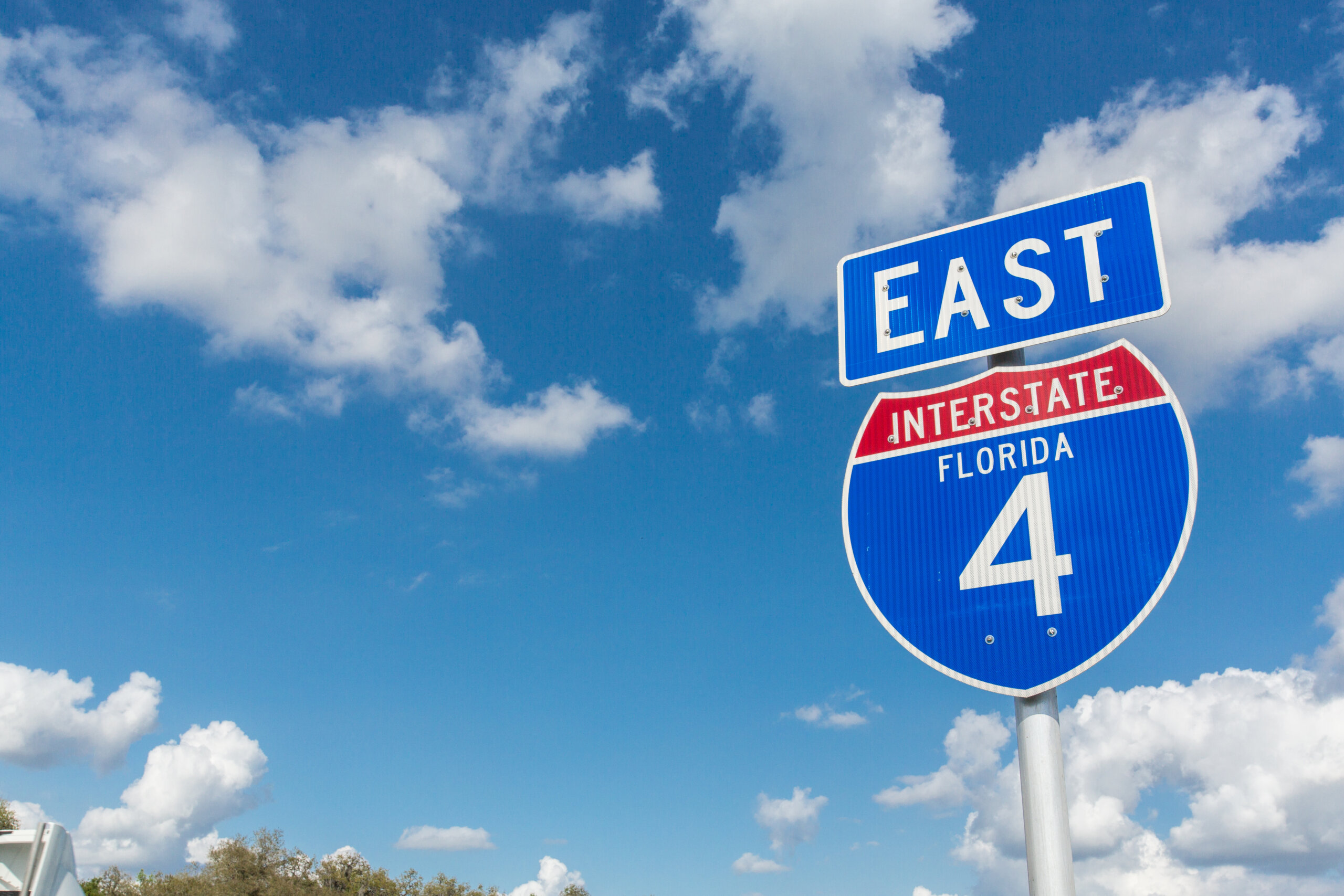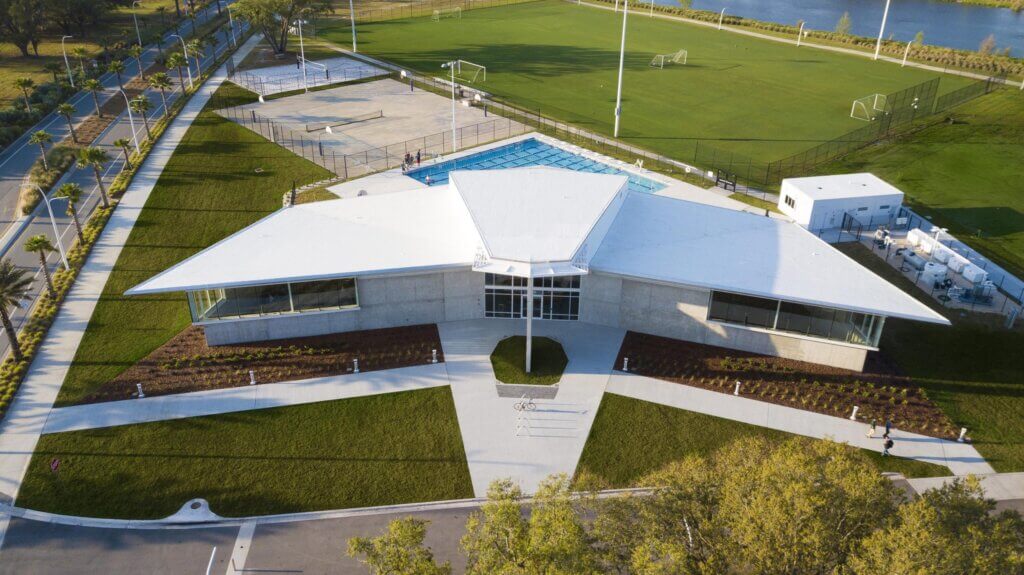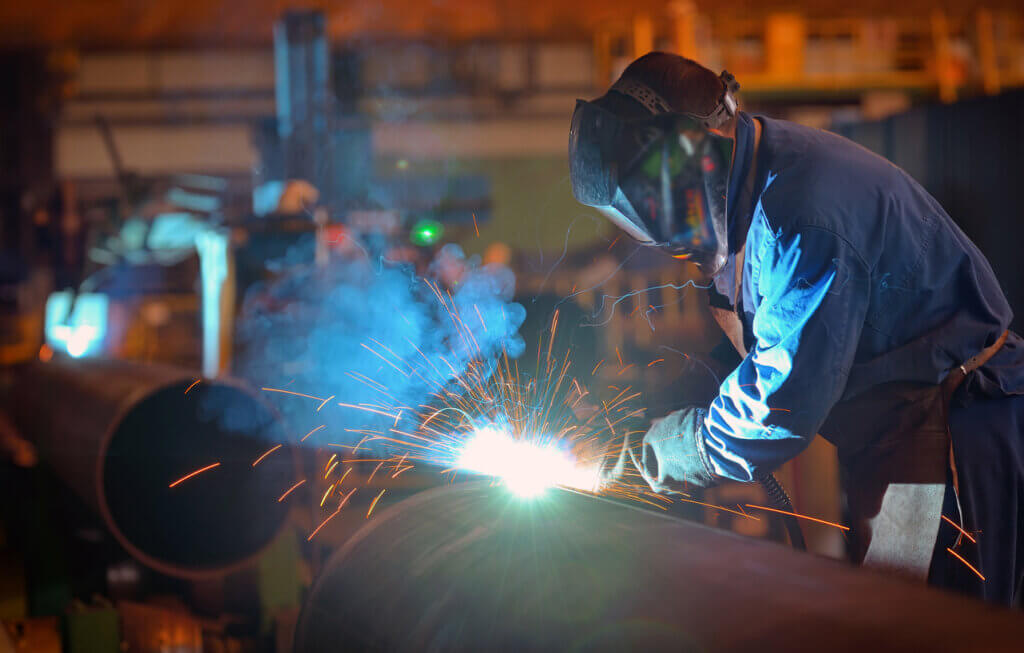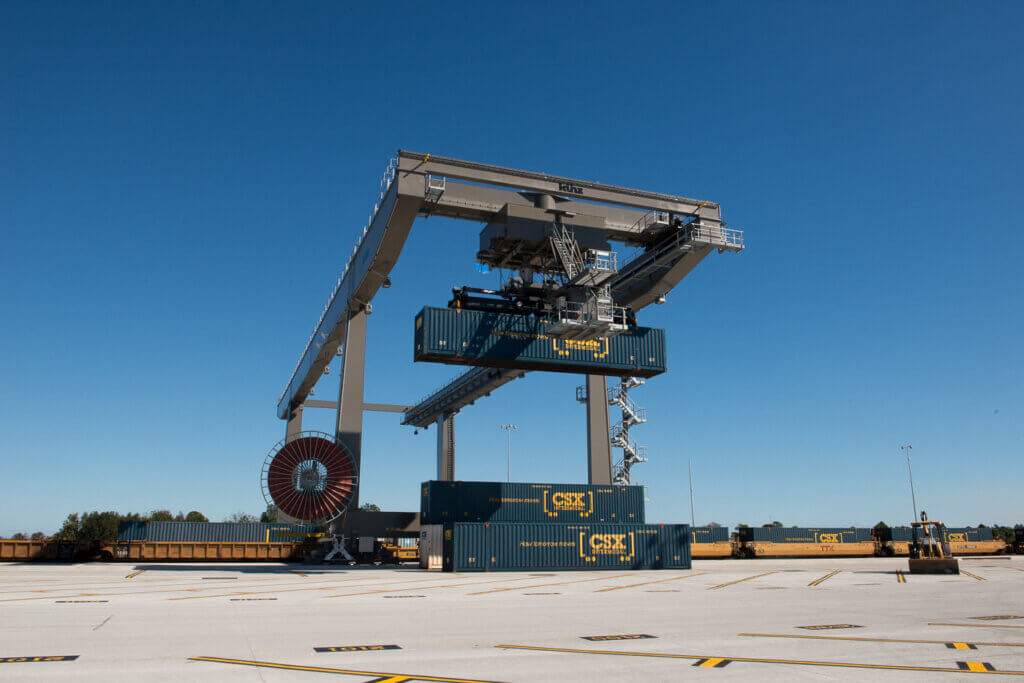Florida Poly Professor Works to Improve Traffic on Interstate 4
Rawa Adla, a professor at Florida Polytechnic University, is using her interest in traffic safety and her degree in computer engineering to make Interstate 4 safer for everyone. Especially those driving past the college that sits along the Polk County stretch of the 132-mile highway.
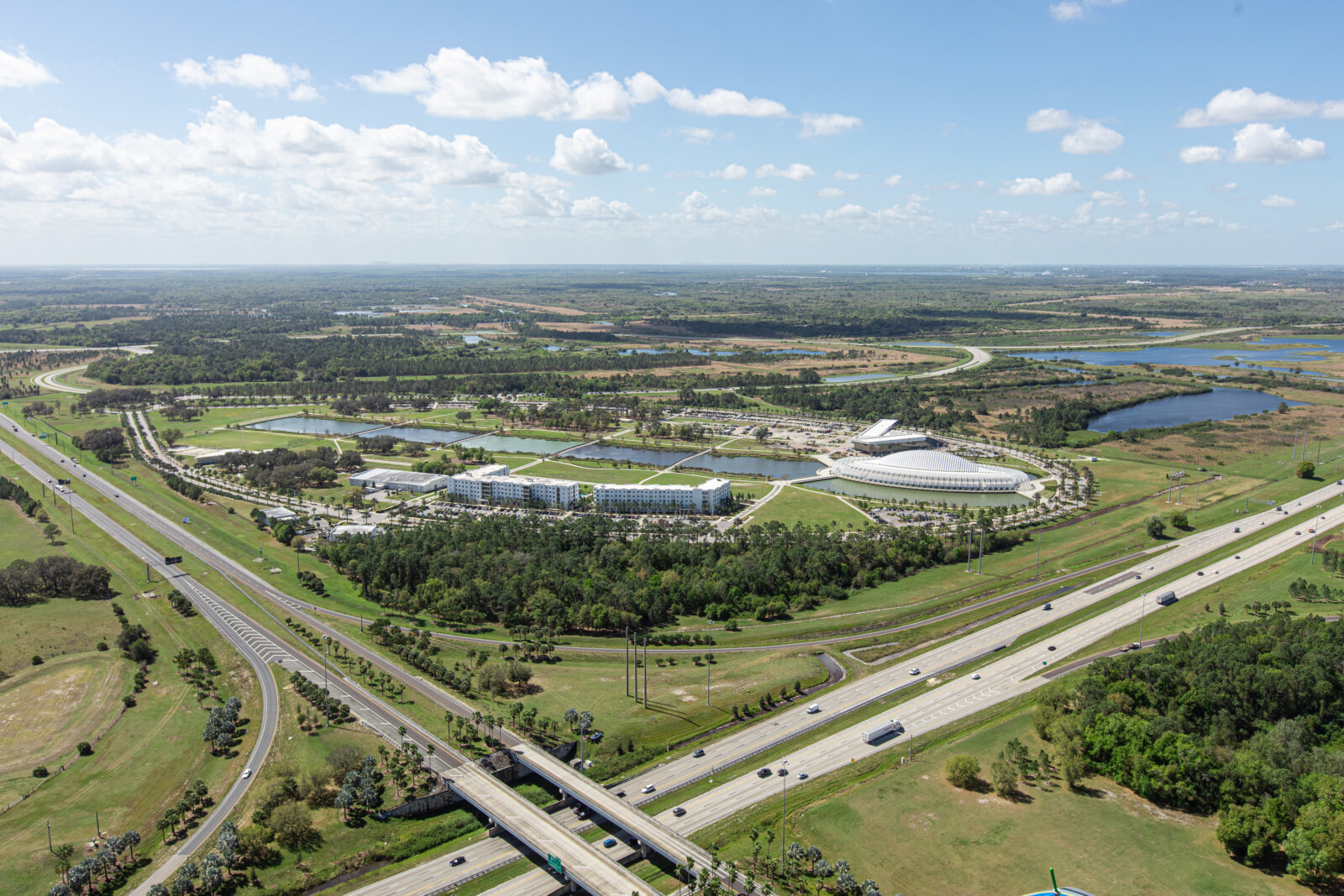
Adla, Assistant Professor of Computer Engineering, is working with the Florida Department of Transportation on the I-4 Florida’s Regional Advanced Mobility Elements (FRAME) Project. The project includes two phases:
- Phase 1, which ended in March 2023, used advanced traffic simulation software to “recreate and evaluate the existing transportation system and expected benefits of the project,” according to a Florida Poly press release. Adla and students working with her found using advanced technology will reduce accidents and travel time.
- Phase two, with completion expected by 2027, includes putting the project’s recommended traffic solutions into place. “As this happens, Adla is analyzing the data collected from their implementation to identify any areas where there are failures or improvements in relation to what was expected,” the release said.
Insurance companies that have studied interstate traffic found Interstate-4 to be the deadliest highway in the country. About 35 fatal crashes occur each year.
Streamlining the traffic flow will help residents and visitors alike.
“This research boosts economic development in Polk County by improving transportation efficiency,” Adla said. “It helps reduce traffic congestion, which saves time and increases productivity for businesses and commuters. It also decreases fuel consumption due to smoother traffic flow.”
The Background
Adla received her Master’s degree in Computer and Information Sciences from the University of Michigan, and her Doctorate in Electrical and Computer Engineering from the University of Detroit Mercy.
During the early stages of her doctoral studies, she started to consider statistics on the frequency and severity of vehicle accidents, sparking her interest in the topic.
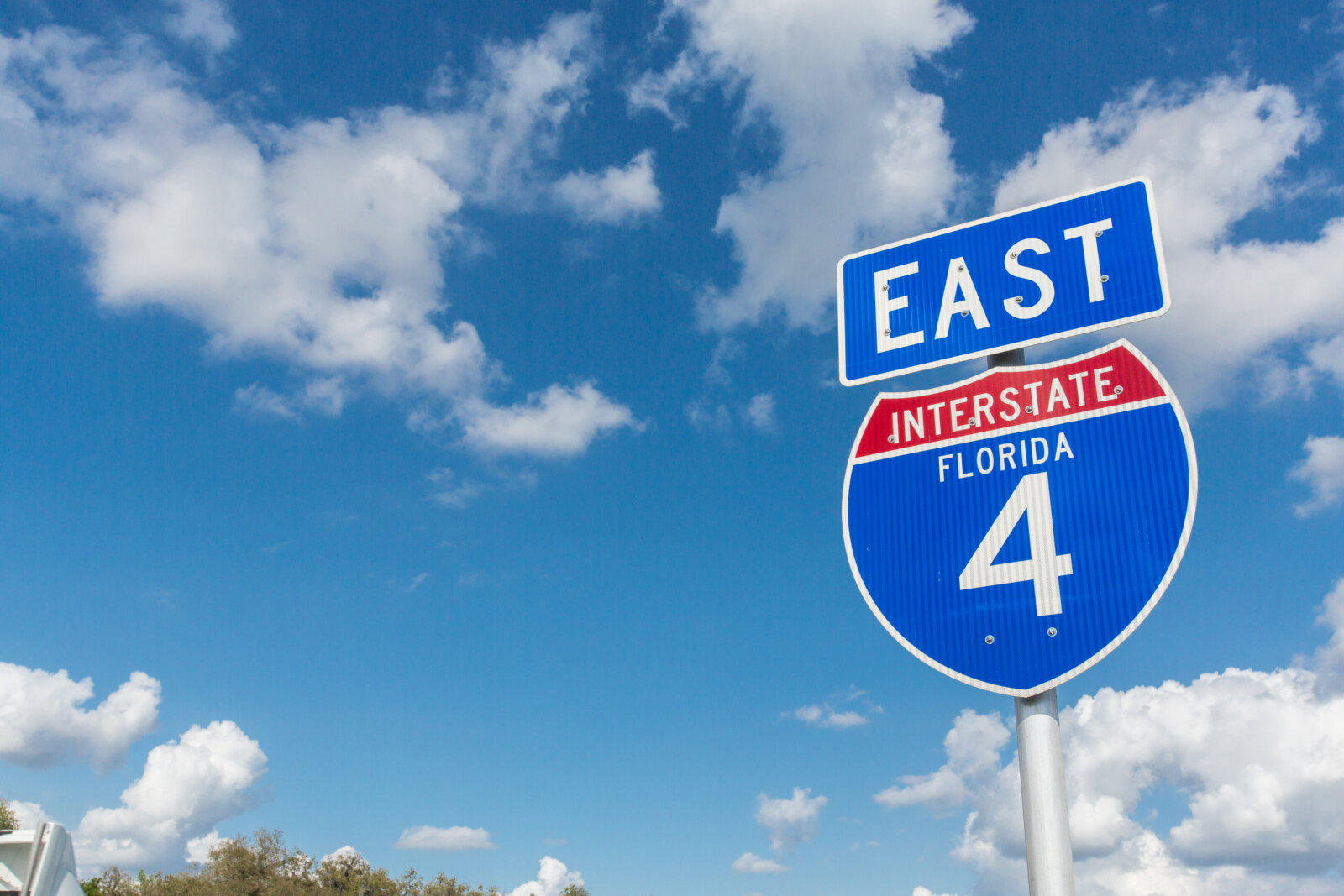
“This got my attention on how we can improve human safety by adopting the emerging technologies,” Adla said. “My background in computer and electrical engineering helped me to excel in researching innovative methods to analyze transportation problems. This passion set the trajectory for my academic and professional focus, connecting my research to real-life traffic problems. With my current position as a professor at Florida Polytechnic University, I found a great opportunity to be involved in research that will have a great impact on traffic safety in the near future.”
Adla and a team of students are conducting research using $252,000 from two grants from the Florida Department of Transportation. This grant was part of a larger one from the U.S. Department of Transportation.
Tracking Interstate 4 Traffic
Adla explained how she captures information and uses it.
“Connected vehicle technology works through a system called vehicle-to-vehicle (V2V) and vehicle-to-infrastructure (V2I) communication. Cars equipped with this technology use wireless signals, such as 5G, to exchange real-time information about their speed, location, and direction. This continuous data exchange allows the cars to know about traffic ahead of time,” she said. This allows for smoother traffic flow.
“For example, connected vehicles can optimize signal timing at intersections or warn drivers about upcoming congestion,” Adla said. “They also enhance safety by preventing or mitigating crashes on the road, which are a major cause of traffic jams. Ultimately, by utilizing these technologies on I-4, transportation will be more efficient and safer.”

Project completion is set for 2027. By this time, drivers should have a much smoother commute on I-4. Technology can make it easier to program traffic lights so emergency vehicles can cross intersections more safely as well, she said.
“We simulated the whole road and included cars with the same characteristics as those normally there, and then we evaluated the benefits,” Adla said. “Our results showed that implementing this advanced technology will reduce the number of crashes and reduce travel time.”
Student Involvement
At Florida Polytechnic, students gain practical hands-on experience in many courses. That’s no different with this project, where graduate and undergraduate students are working with Adla.
“They assist in collecting data, analyzing data, running simulations and gathering results,” she said. “Sometimes we brainstorm ideas for the project. It’s a valuable learning experience for students.”
The Future
Adla said this project can help elsewhere if it’s successful here.
“This study can be replicated in other parts of the country by adapting it to local traffic patterns and infrastructure,” she said. “By sharing data and lessons learned from successful implementations, researchers can alter their systems to suit many diverse environments.”
